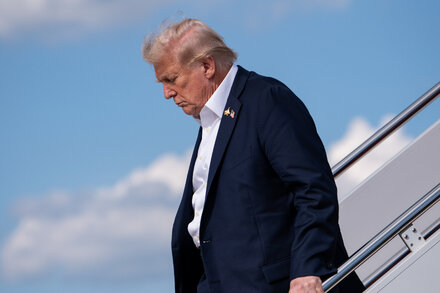The concept of recognizing Palestinian statehood has long been a central, and often contentious, issue in international diplomacy concerning the Israeli-Palestinian conflict. At its core, it involves a country formally acknowledging Palestine as a sovereign state, complete with defined borders, a government, and the capacity to enter into international relations.
Historically, the drive for Palestinian statehood stems from the partition plan proposed by the United Nations in 1947, which envisioned separate Arab and Jewish states. While Israel declared its independence in 1948, a Palestinian state did not materialize. The Palestinian Liberation Organization (PLO) declared an independent State of Palestine in 1988, which was subsequently recognized by a significant number of countries.
What Recognition Entails
For a country to recognize another as a state, it typically involves a unilateral declaration or a mutual agreement. This act carries both symbolic and practical implications:
- International Legitimacy: Recognition confers international legitimacy, strengthening Palestine’s standing in international forums and organizations. It can lead to enhanced diplomatic relations, including the establishment of embassies and greater participation in global bodies.
- Borders and Territory: While not universally agreed upon, most recognitions implicitly or explicitly refer to a Palestinian state based on the 1967 borders, with East Jerusalem as its capital. This aligns with the “two-state solution” framework, which envisions an independent Palestinian state coexisting peacefully alongside Israel.
- Sovereignty: It acknowledges the Palestinian people’s right to self-determination and their claim to exercise sovereign authority over their territory.
Recent Developments and International Positions
As of 2024, more than 140 of the 193 UN member states recognize Palestine. Recent recognitions by European nations like Spain, Ireland, and Norway have brought renewed attention to the issue. These nations often articulate their decision as a means to advance the prospects of a two-state solution.
“We recognize Palestine because we believe it is the only way to achieve peace and security for both Israelis and Palestinians,” stated a European foreign minister recently, emphasizing the move as a step towards a political resolution rather than an act against Israel.
Proponents argue that recognition can level the playing field in future negotiations, providing Palestinians with greater leverage and dignity. They believe it can also foster stability by affirming international law and the principle of self-determination.
Implications for the Peace Process
The impact of recognition on the stalled peace process is a subject of intense debate. Those who advocate for recognition often see it as a catalyst for renewed negotiations, potentially creating more balanced conditions for talks between Israelis and Palestinians. They believe that without the concrete prospect of statehood, there is little incentive for Palestinians to engage in a process that has yielded few tangible results.
Conversely, Israel and its allies often contend that statehood should be the outcome of direct negotiations between the parties, not a precondition or an externally imposed decision. Israeli officials frequently express concerns that unilateral recognition could reward Palestinian intransigence, undermine Israel’s security, and disincentivize genuine dialogue.
“Recognizing a Palestinian state at this juncture sends the wrong message. Peace will only come through direct negotiations, not through unilateral declarations that disregard Israel’s security needs,” an Israeli government spokesperson has previously commented.
The United States, while a long-standing advocate for a two-state solution, has traditionally maintained that Palestinian statehood should be achieved through negotiations, not unilateral recognition. However, some voices within the international community suggest that the lack of progress in negotiations necessitates alternative approaches to keep the two-state solution viable.
Challenges and Future Prospects
Even with widespread international recognition, the practical challenges to establishing a fully sovereign and contiguous Palestinian state remain formidable. These include resolving issues related to borders, settlements, security arrangements, the status of Jerusalem, and the right of return for Palestinian refugees. The internal divisions within the Palestinian leadership also complicate the path to unified governance.
Ultimately, recognizing Palestinian statehood is a complex diplomatic act with significant political weight. It reflects a nation’s stance on the Israeli-Palestinian conflict and its vision for a future resolution, influencing the international discourse and the potential contours of peace.
Source: Read the original article here.





